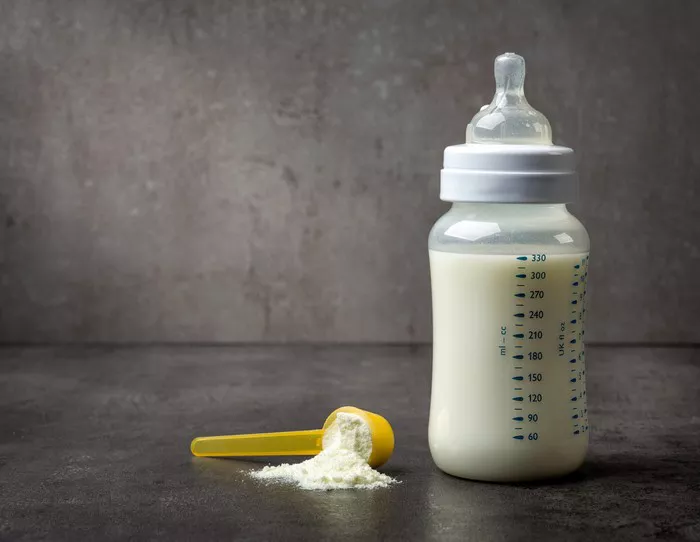When it comes to feeding infants, parents often seek the best nutrition possible for their little ones. Breastfeeding is universally acknowledged as one of the healthiest options for newborns, offering a myriad of benefits for both mother and child. However, circumstances may arise where breastfeeding exclusively may not be feasible, leading parents to consider supplementing with formula. In such cases, questions arise about the compatibility of breastmilk and formula, particularly concerning the potential for causing gas in infants. This article aims to delve into this topic, separating fact from fiction and providing evidence-based insights to aid parents in making informed feeding choices for their babies.
Understanding Infant Gas
Before delving into the discussion of mixing breastmilk and formula, it’s crucial to understand the common causes of gas in infants. Gas is a natural byproduct of digestion and is typically expelled through burping or flatulence. In newborns and young infants, gas can accumulate due to various factors, including:
1. Ingesting air during feeding: Babies may swallow air while feeding, especially if they are bottle-fed or if they have a poor latch during breastfeeding.
2. Immature digestive systems: Newborns have developing digestive systems that may not efficiently process certain components of breastmilk or formula.
3. Intolerance to specific foods: Some infants may have sensitivities or allergies to certain proteins or other components in breastmilk or formula, leading to gas and other gastrointestinal issues.
4. Overfeeding: Feeding too quickly or overfeeding can overwhelm an infant’s digestive system, leading to gas and discomfort.
With these factors in mind, let’s explore whether mixing breastmilk and formula exacerbates gas in infants.
The Myth of Breastmilk-Formula Mixing Causing Gas
One common belief among parents is that mixing breastmilk and formula can lead to increased gas in infants. This notion stems from the idea that combining two different types of milk could create an imbalance in the baby’s digestive system, leading to digestive issues. However, there is limited scientific evidence to support this claim.
Breastmilk and infant formula differ in their composition, with breastmilk being tailored specifically to meet the nutritional needs of a human infant. Formula, on the other hand, is designed to mimic the nutritional profile of breastmilk as closely as possible. While there are differences between the two, mixing them together is unlikely to cause significant digestive upset in most infants.
Research Supporting the Safety of Mixing Breastmilk and Formula
Several studies have investigated the effects of combining breastmilk and formula on infant digestion and overall health. One study published in the “Journal of Pediatric Gastroenterology and Nutrition” found that infants who received a combination of breastmilk and formula did not experience more gas or digestive discomfort than those who were exclusively breastfed or formula-fed. Similarly, another study published in “Nutrients” concluded that mixing breastmilk and formula did not adversely affect infant weight gain, gastrointestinal symptoms, or stool characteristics.
Furthermore, the American Academy of Pediatrics (AAP) states that it is safe to supplement breastfeeding with formula when necessary, and there is no evidence to suggest that doing so leads to increased gas or other digestive issues in infants. The AAP emphasizes the importance of responsive feeding practices, ensuring that babies are fed when hungry and allowed to self-regulate their intake.
Tips for Minimizing Gas in Breastfed and Formula-fed Babies
While mixing breastmilk and formula is generally safe, there are steps parents can take to minimize gas and discomfort in their infants:
1. Ensure proper feeding technique: Whether breastfeeding or bottle-feeding, ensure that your baby has a proper latch and is positioned correctly to minimize the intake of air.
2. Burp your baby: Take breaks during feeding to burp your baby, allowing trapped air to escape.
3. Use slow-flow nipples: If bottle-feeding, use nipples with a slow flow to prevent your baby from swallowing air too quickly.
4. Address potential food sensitivities: If you suspect that your baby is sensitive to certain foods, such as cow’s milk protein, consult with your pediatrician to explore alternative feeding options.
5. Monitor feeding cues: Pay attention to your baby’s hunger and fullness cues, avoiding overfeeding.
Conclusion
In conclusion, the belief that mixing breastmilk and formula causes gas in infants is largely a myth. Research and expert recommendations support the safety of supplementing breastfeeding with formula when necessary, and there is no evidence to suggest that doing so leads to increased gas or digestive issues in most infants. Parents can feel confident in their feeding choices, knowing that they can provide their babies with the nutrition they need while minimizing discomfort. By understanding the common causes of infant gas and implementing strategies to promote healthy digestion, parents can help their little ones thrive during this critical stage of development.


